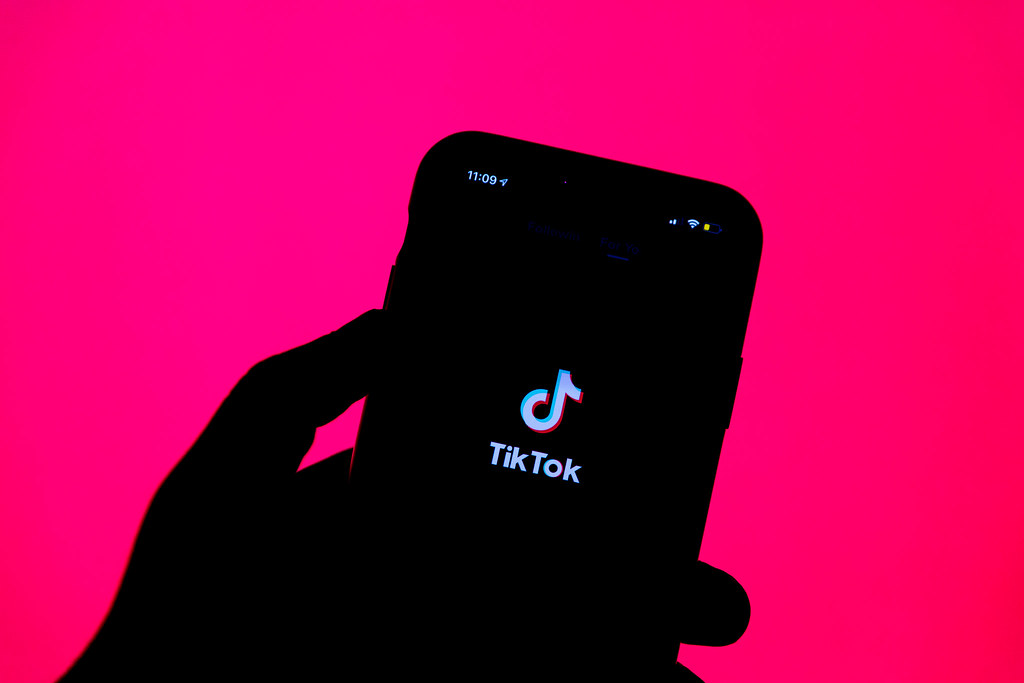
(Creative Commons / Solen Feyissa)
Chaya Tong (25C) and Dani Parra del Riego Valencia (25C) wrote an article lauding the creation of “bimbofication,” a TikTok trend led by Chrissy Chlapecka to reclaim the word “bimbo.” But this new fad flooding the Internet is nothing more than a white-washed, performative aesthetic pretending to solve systemic problems like sexism and racism.
A self-proclaimed pioneer of bimboism, Chlapecka defines herself as a “pro-choice, pro-sex work, pro-Black Lives Matter” woman who can be whoever she wants to be. To even call her a pioneer or a leader is giving far too much credit: her definition of bimboism encapsulates the political characteristics of a majority of liberal-leaning millennials and Gen Z teenagers who already subscribe to these political beliefs. They don’t need some trend to tell them they’re doing it right.
For the most part, college students today are socially aware and trying their best to be politically engaged. But anti-capitalism isn’t new, and lack of representation for people of color and queer groups won’t be remedied by a supposedly “inclusive” internet fad. Educating people while wearing heavy makeup and ranting about the inequities of this world with neatly manicured nails is not progressive and doesn’t make you a better person.
As the case with most social media activism, bimbofication will die down, and Chlapecka will have achieved what most other faux woke influencers have: nothing. Like many other young social media users, Tong and Valencia wrongly praise Chlapecka’s efforts. Her brand of “bimbo babes” only banishes historical waves of feminism to the background. Condemning previous waves of feminism is reductive and unproductive in the discourse surrounding women’s rights. Women fought for empowerment because suffrage and individual rights for women were nonexistent in the 1800s. Tong and Valencia criticize “former waves of feminism as individual empowerment,” but without historical figures like Elizabeth Cady Stanton and Lucretia Mott or modern contemporaries like bell hooks and Malala Yousafzai arguing and writing about female rights, it would be impossible for bimbos today to reject society all together.
Further, bimboism is highly contradictory. Not caring what others think is a privilege I can only afford when my sexuality and ethnicity are not furthering my marginalization as a woman. Denying current social ideals with bimbofication is rather ironic, since the whole concept of identifying as a bimbo is just a recreation of a new social stereotype.
One of the major tenets of bimboism is to not care what others think. Chlapecka’s words come straight out of the many self-help and self-care books that tell you to ignore the rest of society because – say it with me folks – you are perfect. In fact, hooks’ feminist theory recognizes that intersectionality of gender and other social classifications like race and sexuality affect women and their experience with sexism. Marginalized communities can’t just forget the racial and social implications lobbed at them. But Chlapecka wouldn’t know any better; she’s among all the other obsessively extreme leftists, touting faux wokeness with a predominantly white, stereotypical girly aesthetic that matches perfectly with TV characters like Elle Woods and Sharpay Evans.
Wielding bimbofication as a weapon against social constructs is bold and admirable. But once it becomes a tacky social media trend, every ounce of dignity that once lied in reclaiming an identity is lost. Trends like bimbofication launch people into a frenzy of copying influencers and adapting themselves to the newest aesthetic. Supposedly meant to encourage different identities, social media trends about identity have the opposite effect – they fuel our desire to please the people around us and to belong with the crowd. I’m not against people wanting to be bimbos, but turning it into a trend defeats the purpose of reclaiming who you are.
But hey, in the rampant age of cancel culture, hopping on the bandwagon could be your next marketable LinkedIn skill. Prospective job applicants can add the following blurb: Knowledgeable about performative activist trends, and can curate a personality to prevent cancellation.
To be clear, I’m not against embracing who you are – whether that be unintelligent attractiveness, or ditzy femme-ness – I’m against the necessity of forming a trend. It fails to acknowledge those who fought for the same political beliefs that Chlapecka is touting now and asks women of color to potentially reclaim themselves with a word predominantly associated with and often used to define skinny, white women.
Some may misconstrue my argument as being anti-bimbofication and resisting the unity of all different types of women. This cannot be further from the truth. Rather, I understand the desire to reject societal norms and to embrace unintelligent attractiveness but doing so doesn’t simply come from slapping on a name tag that says, “Hi, my name is Bimbo.”
On social media, the line between performative and non-performative activism is heavily blurred. But if posting on Instagram or TikTok is the only piece of action that you take, nothing will change. If sharing stories about your decision to become a bimbo will empower you to stand up to those demeaning your identity in real life, do so. But don’t pretend to be better than other people when all you’ve done is press a button.
Bimbofication is idealistic in a world where identity is both the individual and the collective; it’s about who you are internally, but also how external history, cultural roots and society have shaped you today. Balancing what everyone else thinks while being your own person is difficult, as is battling deep-rooted patriarchal norms. But at least when I’m trying to define myself, I’m searching beyond the latest hashtag.
Sophia Ling (24C) is from Carmel, Indiana.
Sophia Ling (she/her) (24C) is from Carmel, Indiana and double majoring in Political Science and Sociology. She wrote for the Current in Carmel. She also loves playing guitar and piano, cooking and swimming. In her free time, she learns new card tricks and practices typing faster.



